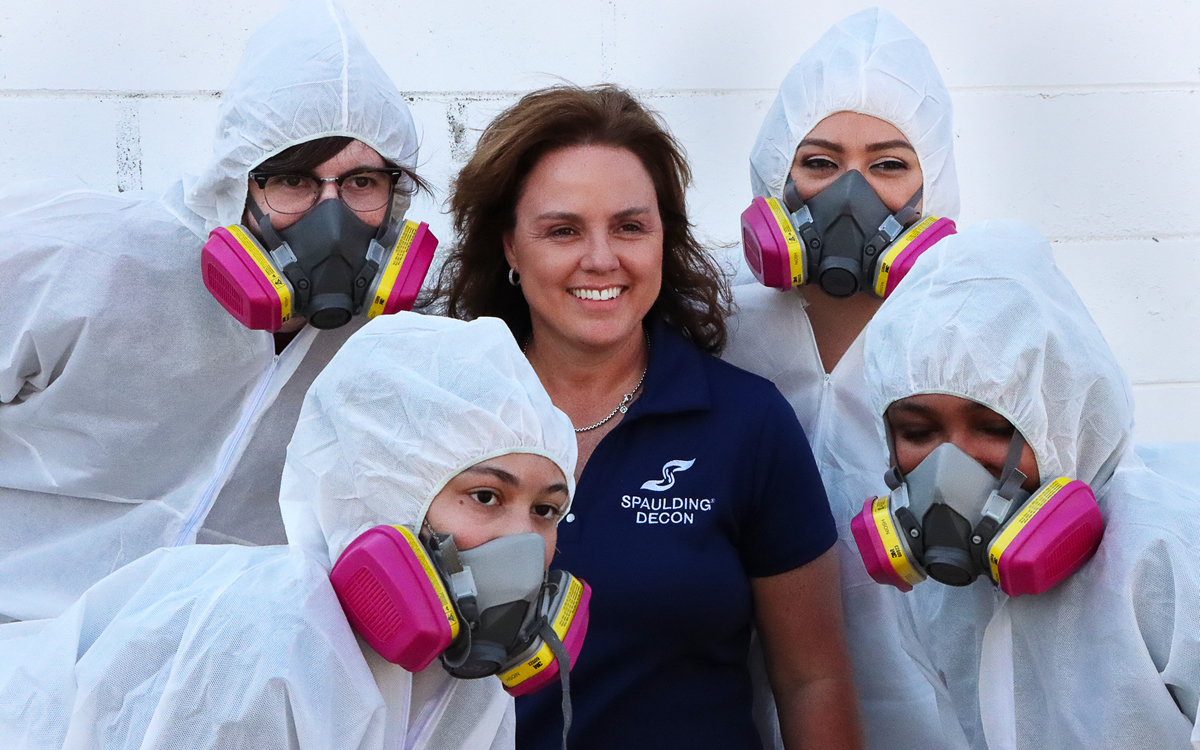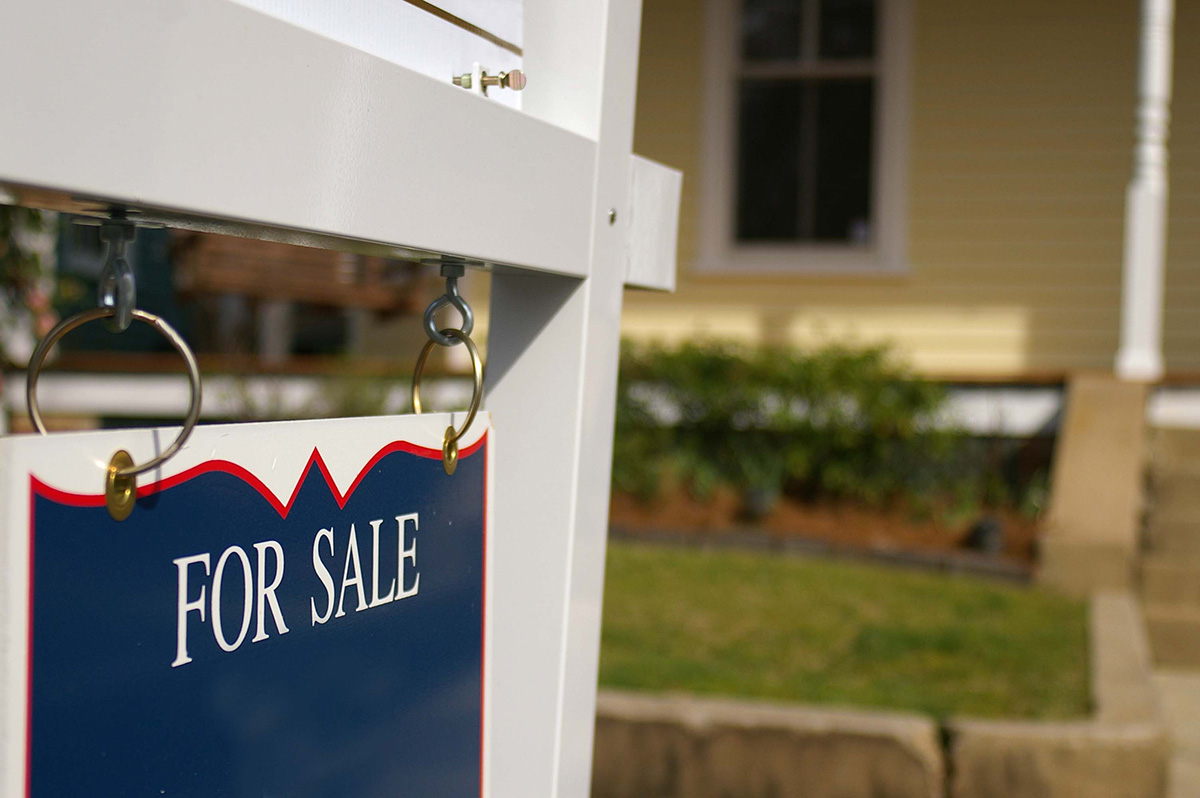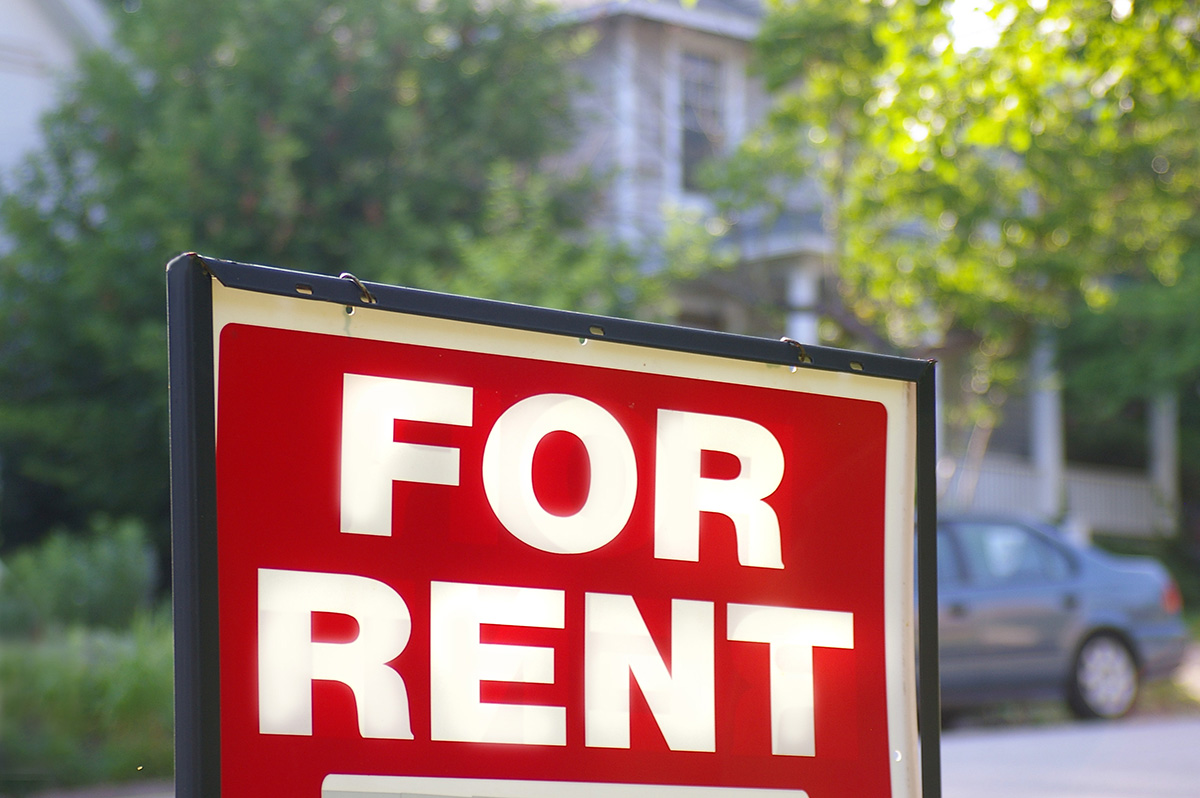Financial
Lesbian entrepreneur uses crime scene TikTok to educate
‘You can change people’s lives by returning things to pre-incident condition’

(Editor’s note: This is the second in a multi-part summer series of stories taking a closer look at how a group of diverse LGBTQ entrepreneurs survived and thrived during the pandemic. The series is sponsored by the National LGBT Chamber of Commerce.)
Spaulding Decon’s 4.2 million followers probably tune into the company’s popular crime scene cleaning TikTok to watch technicians scrub away blood or dismantle drug labs, but sometimes Founder and CEO Laura Spaulding slips in a little more.
“Today we’re going to be talking about the affordable housing crisis,” Spaulding, a former Kansas City police officer, tells viewers in an April teaser; later a young woman shares how difficult it has been surviving outside the benefits threshold.
Spaulding founded her multimillion-dollar business specializing in biohazard clean up in 2005, and in 2016 it became the first nationally franchised decontamination service.
However, the onset of the global pandemic threatened to derail the success of this lesbian entrepreneur.
When states were going into lockdowns in 2020, in a desperate effort to slow the pandemic’s death toll and contain the spread of the disease, many businesses struggled. According to Commerce Department data, real GDP across industry sectors fell sharply in the second quarter of 2020 as the world plunged into an economic recession.
Spaulding said surviving the crisis meant being able to navigate quickly in a new environment. Her business survived, in part, by reaching out via social media to the millions who unexpectedly found themselves locked down.
“We actually grew our business during the pandemic,” Spaulding told the Blade. “Other brands possibly didn’t do that because they were in crisis mode. But we showed viewers an insight into what disinfecting for COVID looks like. We gained a ton of followers because of that.”
In 2021, Spaulding Decon made the Inc. Magazine list of the 5,000 fastest growing private companies, an honor that gave Under Armor, Patagonia and Microsoft their first national recognition.
Inc. noted the “unprecedented challenges” this group of honorees faced in 2020, to not only survive but thrive with an average median three-year growth rate of 543 percent and combined median revenue nearing $11 million.
This was an achievement Spaulding said she never dreamed was possible. When she started her company, she did so with little outside investment and sheer determination.
“I’m just a regular person trying to build a business,” Spaulding said about her challenges. “[Being a lesbian business owner] hasn’t hindered me or benefitted me either. I’ve never gotten a contract because of it. But it will only hinder you if you let it.”
And she said the struggle for labor is real. Turnover among technicians is high.
Working long hours in protective equipment can be physically demanding, and cleaning up after violent deaths can take an emotional toll, but Spaulding enjoys working alongside those who tough it out with her.
“The people that I work with are amazing,” she said. “Since COVID, we’re operating with fewer staff members than we’ve ever had, but I enjoy being with them, side-by-side. We’re mission based.”
‘You can change people’s lives’
Today, Spaulding lives with her partner of four years and co-parents a 4-year-old, a 3-year-old, and a rescue dog named Sammy, a retriever mix. But back in 2005, she was a police officer facing a distraught homicide victim’s mom who wanted to know when they were returning to clean up the crime scene.
Spaulding told the Story Exchange in February she felt bad for the mother who had just been through so much, but the only answer she had for her was “We don’t do that.”
So, Spaulding left police work and went into the crime scene cleaning business. The work has been challenging, but years later she has no regrets.
“You can change people’s lives by returning things to pre-incident condition,” she told the Blade. “Especially the suicide clean ups because they don’t have to see it. You can’t get rid of the memory of [seeing the person like that], but we can put that room back together.”
Even before the pandemic created a captive audience, there was interest from the media in Spaulding Decon’s work due to the inherent drama involved.
“We were getting approached with reality show producers. But they could never get it sold because they thought it would be too graphic,” Spaulding explained.
“So, I was like let’s do it ourselves and post it to YouTube, and that’s how the social media series was born.”
Currently, Spaulding Decon’s Crime Scene Cleaning YouTube channel has more than 800,000 subscribers, and while much of the content can be graphic, some can be off-beat and unexpected, such as the 1980s E.T. Atari game unearthed during a hoarding clean up.
As the pandemic moves into its long-term and less acute stage, Spaulding Decon’s social media presence and popularity continue to hold strong. Its Crime Scene Cleaning series now has a spin-off focusing on in-depth interviews with people dealing with a variety of subjects.
“We get DMs [direct messages] on our social channels about how do I clean this particular thing?” Spaulding explained. “And we’ll do videos on that to make sure people are educated.”
This desire to educate pushed Spaulding to grow her franchise in a new direction.
“We have a spin off called ‘Talking Decon,’” she said. “Where we do more investigative-type interviews. The last one was with a victim of human trafficking.”
This new series provides a chance for the former cop to engage the community in a meaningful way.
“We take an educational approach to social media. So we have a cult-like following,” Spaulding said. “And we stay in communication with followers and fans.”
NGLCC: It’s a ‘community thing’
Spaulding has worked hard to make her business a success and she credits her staff and technicians for working just as hard in their “labor of love.”
However, her biggest tip for new entrepreneurs and LGBTQ business owners is to find a mentor to learn from early on.
“You will get to where you need to be faster than by learning from your mistakes,” she added.
Spaulding also pointed out the support she found as a member of the National LGBT Chamber of Commerce (NGLCC). She found it nice to be able to bounce ideas off “our own people” in a safe and comfortable environment.
“It was more of a community thing,” she said. “And it’s important for all minorities to stay at the top of your game – it’s not an even playing field. It’s constant education. It’s constantly finding things that you can do better to overcome the competition.”
Economics professor M.V. Lee Badgett, a distinguished scholar at UCLA’s Williams Institute, has researched the benefits of LGBTQ equality on the economy. Her books have debunked the myth of gay affluence and instead highlight the economic challenges LGBTQ people face due to discrimination.
“The bottom line,” Badgett told the Blade. “Is that for an economy to perform as well as it could, it needs everyone to contribute as much as they have to offer.”
Justin Nelson, the NGLCC co-founder and president, also explained that resilience and community are important.
“Our community is sustained by our resilience and commitment to helping one another through the good times and the challenging ones,” Nelson said. “It has never been easier to go online or check with your local affiliate LGBT Chamber of Commerce to make sure you support the brands that have our community’s back.”
And Spaulding is committed to continuing to grow her company. An avid reader, she just finished Dan Sullivan’s “Who Not How: The Formula to Achieve Bigger Goals Through Accelerating Teamwork” and enjoyed its insights.
“You can’t do everything alone,” she said. “I came up thinking I had to do everything and pay for everything myself, but sometimes you need to find the ‘who’ – that person who can help you do something, instead of just figuring out how to do it yourself.”
Her new goal is to grow her business from 56 locations to 100.
“I think it’s challenging,” she said. “But doable.”
Real Estate
Child- and pet-proofing your home for the holidays
It isn’t about being perfect but about being prepared

The holidays are meant to be joyful, cozy, and full of laughter — but if you have young children or pets, they can also feel a little chaotic. Twinkling lights, shiny decorations, guests coming and going, and tables full of tempting food can turn your home into a wonderland of curiosity and mischief. The good news? With a little thoughtful planning, you can keep the holiday magic alive while making your home safer for everyone who lives there.
There’s something oddly comforting about movies where animals go to war with holiday decorations, turning carefully strung lights and perfectly placed ornaments into chaos. Whether it’s a mischievous dog tangled in tinsel or a curious cat launching a full-scale assault on a Christmas tree, these scenes tap into a universal experience for pet owners.
The humor comes from the contrast: the human characters are trying to create warmth, tradition, and picture-perfect cheer, while the animals see the decorations as toys, obstacles, or personal enemies. The resulting destruction — trees tipping over, ornaments shattering, lights blinking out—feels exaggerated but relatable, especially during the already hectic holiday season.
Let’s start with decorations because they tend to be the biggest attraction. Ornaments sparkle, garlands dangle, and everything seems designed to be touched, pulled, or tasted. If you have little ones or pets, consider placing your most fragile ornaments higher on the tree and using shatterproof options on the lower branches. Tinsel and ribbon may look festive, but they can be dangerous if swallowed, so skipping them or keeping them well out of reach is a simple way to reduce risk without sacrificing style.
Holiday lights are another favorite fascination. Before hanging them, take a few minutes to inspect each strand for frayed wires or broken bulbs. Secure cords along walls or behind furniture so they’re harder to grab or chew and unplug them when you leave the house or head to bed. Not only does this help prevent accidents, but it also gives you one less thing to worry about during a busy season.
The Christmas tree itself can become a focal point for exploration. Make sure it’s sturdy and well-anchored so it doesn’t tip if a toddler tugs on a branch or a pet decides to investigate. If you use a real tree, cover the water base since tree water can contain additives that aren’t safe if consumed. For artificial trees, keep an eye out for loose pieces or needles that could become choking hazards.
Food is a big part of holiday celebrations, and it’s also one of the most common sources of trouble. Many traditional treats—like chocolate, grapes, raisins, alcohol, and foods containing xylitol—are dangerous for pets. Keep plates and serving dishes up high, secure the trash can, and gently remind guests not to slip pets or kids “just a little bite” without checking first. For children, be mindful of hard candies, nuts, and small treats that could pose choking risks.
Candles and fireplaces add warmth and charm, but they deserve extra caution. Flameless candles are a wonderful alternative if you want ambiance without worry. If you do use real candles, place them well out of reach and never leave them unattended. Fireplaces should always have a sturdy screen or gate, especially with crawling babies or curious pets nearby.
Holiday gatherings bring wonderful energy into your home, but they can also create new challenges. Doors opening frequently make it easier for pets to slip outside, so consider setting up a quiet, comfortable space where they can relax during busy get-togethers. This can help reduce stress for them and give you peace of mind. For children, stair gates, locked cabinets, and clear boundaries can help prevent accidents when there’s extra excitement in the air.
New toys and gifts are another thing to watch closely. Packaging, twist ties, plastic wrap, and especially button batteries should be cleaned up promptly. These items are easy to overlook in the excitement of gift-opening but can be dangerous if swallowed. Taking a few minutes to tidy up as you go can make a big difference.
Lastly, try to keep routines as steady as possible. The holidays naturally disrupt schedules, but familiar mealtimes, naps, walks, and bedtime rituals help children and pets feel secure. A calmer household often means fewer accidents and a happier experience for everyone.
At the end of the day, child- and pet-proofing your home for the holidays isn’t about being perfect but about being prepared. A few small adjustments can help you relax, enjoy your guests, and focus on what truly matters: creating warm, happy memories with the ones you love. When your home feels safe, the holidays feel even sweeter.
Valerie M. Blake is a licensed Associate Broker in D.C., Maryland, and Virginia with RLAH @properties. Call or text her at 202-246-8602, email her at [email protected] or follow her on Facebook at TheRealst8ofAffairs.
Real Estate
In real estate, trust the process
With rates coming down, we could see spring surge in buyers

The average 30-year mortgage rate is falling, little by slowly. With predictions that the rate will continue to adjust downward in the next year or two, there may be a busier spring market than we have seen in the last few year, especially for the DMV market, which has been reeling from thousands of layoffs this past year. The frenzied activity resulting from interest rates close to 3% for some borrowers will probably not occur; however, this spring could add up to be a few notches busier than the last.
What does this mean for buyers and sellers? Lender Tina Del Casale with Waterstone Mortgage says she has seen “low to mid 6’s as the average for conventional loans.” If rates continue downward into the 5% range, there may be more activity than we saw in the last year or two. This could release a little bit of pent up demand.
Many buyers will have found that for whatever reason, their current home is not meeting their needs. Sellers may want to finally take the plunge and put a for sale sign in the yard and online, now that they might find a more reasonable rate on their next home. This winter can be an opportunity to assess financial situations, home conditions, and optimize one’s chances to have a sale with more agreeable terms, or put one’s best foot forward in an offer. In addition to checking with a lender or favorite handy person, let’s review what sellers and buyers typically spend their energy negotiating while enjoying the lovely process called “going under contract”:
- Timelines – Sellers might want to have their house solidly under contract (papers signed, thumbs up from the lenders, all inspection items decided upon and settled) so that they can put an offer down on a new home, and then negotiate that timeline with the other sellers. Remember, making a move is not only about the buyer taking possession of a new home, but also about the sellers figuring out their situation as well.
- Sale Price – unfortunately for buyers, in the eyes of most sellers, “money talks.” So, in a non-competitive situation, a seller might be happy to just get one offer at a price that was within the desired range. As soon as another interested buyer enters the equation, it can become a little bit like RuPaul’s Drag Race, and one will have to lip sync for one’s life, honey! And only one buyer will get to hear the words, “condragulations!”
- Tone/Vibes/Energy in the Room – Remember: Human beings are emotional creatures. All of us have feelings. And all of us want to put energy into situations where we feel appreciated, where a level of self-awareness exists, and a sense that each side is trying one’s hardest to act in good faith. The best transactions I saw were where a little grace was the “grease on the wheels” of the transaction. Occasionally, a buyer had cold feet and wanted to see the unit a few more times before the settlement date, or a seller forgot to scrub the bathroom with a little extra elbow grease before the settlement date. Life happens; misunderstandings can occur. A wise therapist once said: “You don’t have to like it, but can you allow it?” The tone of one or both parties in the transaction can be what seals the deal, or results in one party exiting the contract. (In the case of the dirty bathroom, the seller left a check with the title company for the buyer to pay a housekeeper to come clean what they couldn’t.)
Joseph Hudson is a referral agent with Metro Referrals. He can be reached at 703-587-0597 or [email protected].
Real Estate
Signs you’ve outgrown self-management of your D.C. rental
Keeping up with local regulations is a struggle

According to rental market statistics from RentCafe, Washington, D.C., remains at the top of the most popular cities for rental properties. With a strong rental market and a growing population, success should be second nature to real estate investors and rental property owners in this area.
As a self-manager of your own rental, if you’re not enjoying the profitability and the earnings that this market can provide, it might be time to look for professional management.
There are certain signs that show property owners have outgrown self-management. We’re exploring those today, and inviting DIY landlords to consider the benefits that come with a partnership with a professional property management company in Washington, D.C.
Washington, D.C., is known for having a complex and ever-changing regulatory environment. There are strict tenant rights, rent control laws, and specific rules related to property maintenance such as mold, lead based paint hazards, among others. The Rental Housing Act of 1985 is strictly enforced, and under this program, there are specific rules regarding rent adjustments, dispute resolution, and eviction protections.
Fair housing laws need complete compliance, security deposits have strict timelines, and habitability standards are in place to ensure tenants are living in a home that’s safe and well-maintained.
Staying on top of these rules can be time-consuming and difficult. Violating even a small regulation unintentionally can result in fines or legal action. It’s critical to stay compliant, and if you find yourself struggling to keep up with the evolving laws and regulations, it’s a clear sign that you may need professional help. Property managers can reduce the risk and liability of making a legal mistake.
Financial Returns are Underwhelming
A lot of self-managing landlords choose to lease, manage, and maintain their own properties because they don’t want to pay a management fee. We get it. Keeping more of your money seems like the best way to increase profitability.
But, here’s the reality of it: property managers can help you earn more and spend less on your investment, increasing your earnings and your ROI. In fact, a good property manager can often earn enough additional net revenue for the owner to pay for that fee over a year.
Property managers are experienced at maximizing the financial performance of rental properties. We can help:
- Optimize rental income
- Reduce vacancy rates
- Lower maintenance costs through established vendor relationships
- Recommend improvements for higher values
Ultimately, a good property manager will ensure that your property is being run efficiently. We will use our expertise to ensure your property is earning what it should.
Maintenance and Repairs Are Taking Up Too Much Time
Maintenance challenges are not unique to self-managing rental property owners. We deal with them, too, as professional property managers. We respond to plumbing issues and appliance malfunctions, we take calls in the middle of the night when a sewer is backing up, and we work hard to protect properties against deterioration and general wear and tear.
This can be overwhelming, especially when it comes to finding vendors and service professionals that are both affordable and provide quality service. Plumbers, electricians, HVAC technicians, and even landscapers and cleaners are in high demand in Washington, D.C. But maintenance at your rental property cannot wait. It’s essential to the value and condition of your investment as well as to the product you are selling.
It’s time to work with a professional property manager if you’re having trouble finding vendors or if you’re struggling to keep up with maintenance requests. We have systems for emergency responses, routine repairs, and preventative services.
Tenant Screening Is Becoming More Difficult and Time-Consuming
Finding good tenants is one of the most critical aspects of rental property management. But in our home of Washington, D.C. we have one of the most regulated rental markets in the country. The tenant screening process has become increasingly complex, highly restricted, and time-intensive.
Many property owners are surprised to learn that there are more limitations than ever on what can be screened, what information can be used in making a decision whom to rent to, and how screening decisions must be documented. Federal and local laws tightly regulate the use of credit histories, criminal background records, income verification, and even eviction records. Staying compliant is not optional. Failure to follow these rules can open the door to discrimination claims, administrative complaints, substantial fines, or even lawsuits.
That’s why rushing or relying on outdated methods can easily result in selecting the wrong resident or worse, unintentionally violating DC’s Human Rights Act or federal Fair Housing laws.
Problematic tenants often become evident only after move-in: lease breaks, chronic late payments, noise complaints, and property damage. When these patterns appear repeatedly, it is often a sign that the screening process is not sufficiently structured.
Why Professional Screening Matters
Professional property managers have systems in place to perform thorough, legally compliant screening while avoiding oversteps that could violate the regulations. Professional property managers use trusted screening platforms and follow written processes that keep owners protected and ensure fairness for applicants.
Columbia Property Management’s screening process includes:
- Credit Report Review
Evaluating credit patterns, payment reliability, and debt load while complying with restrictions on how data can be used. - Rental History Verification
Contacting prior landlords and reviewing national eviction databases—keeping in mind that some jurisdictions like the District of Columbia limit how far back eviction data can be seen, must less considered. - Background ChecksReviewing public records in a manner consistent with DC’s Human Rights Act and federal guidance on criminal history usage. Not all criminal records can be considered in rental decisions, and timing rules often apply.
- Income & Employment Verification
Confirming applicants can afford the rent and other monthly expenses based on their income, without ruling out certain income in a discriminatory way (e.g., vouchers, subsidies, or lawful alternative forms of income). There are many intentional steps conducted by professional property managers under a framework that ensures decisions are based on objective criteria, applied consistently, and fully aligned with the latest federal and DC regulations.
Your Property Is Sitting Vacant for Longer Periods
While current rental market dynamics are starting to show the effects of federal workforce layoffs and the worsening local economy, the vacancy rate in Washington, D.C., is relatively low, compared to the national average. According to a news report from WTOP, the local vacancy rate is just 6%, and there are an average of seven applications for every available rental unit.
A vacant rental property can quickly become a financial drain. Whether you own a condo near Dupont Circle or a single-family home in one of Capitol Hill’s neighborhoods, every day your property sits empty means lost income. While the D.C. market is generally competitive, the reality is that there are always fluctuations in demand based on seasons, neighborhood desirability, and even economic trends.
If you’re struggling to fill your rental quickly, it might be a sign that you need to re-evaluate your approach. An experienced property management company has a marketing strategy in place to keep vacancy periods as short as possible. From professional photos and listings to leveraging established networks, they can help ensure that your property is rented quickly, reducing the amount of time it sits vacant.
While managing a rental property in Washington, D.C., can be rewarding, it’s also challenging. As your property portfolio grows or the demands of your life or the demands of being a landlord increase, it’s helpful to recognize when it’s time to step back and let a professional handle the day-to-day tasks.
From navigating complex local regulations to ensuring your property remains occupied and well-maintained, there are many reasons why rental property owners in Washington, D.C., outgrow self-management. If any of these signs resonate with you, consider partnering with a property management company like ours to ensure that your rental investment continues to thrive without the stress and burnout of self-management.
We’d love to be your Washington, D.C., property management partner and resource. Please contact us at 888-857-6594 or ColumbiaPM.com
Scott Bloom is owner and Senior Property Manager, Columbia Property Management.




















